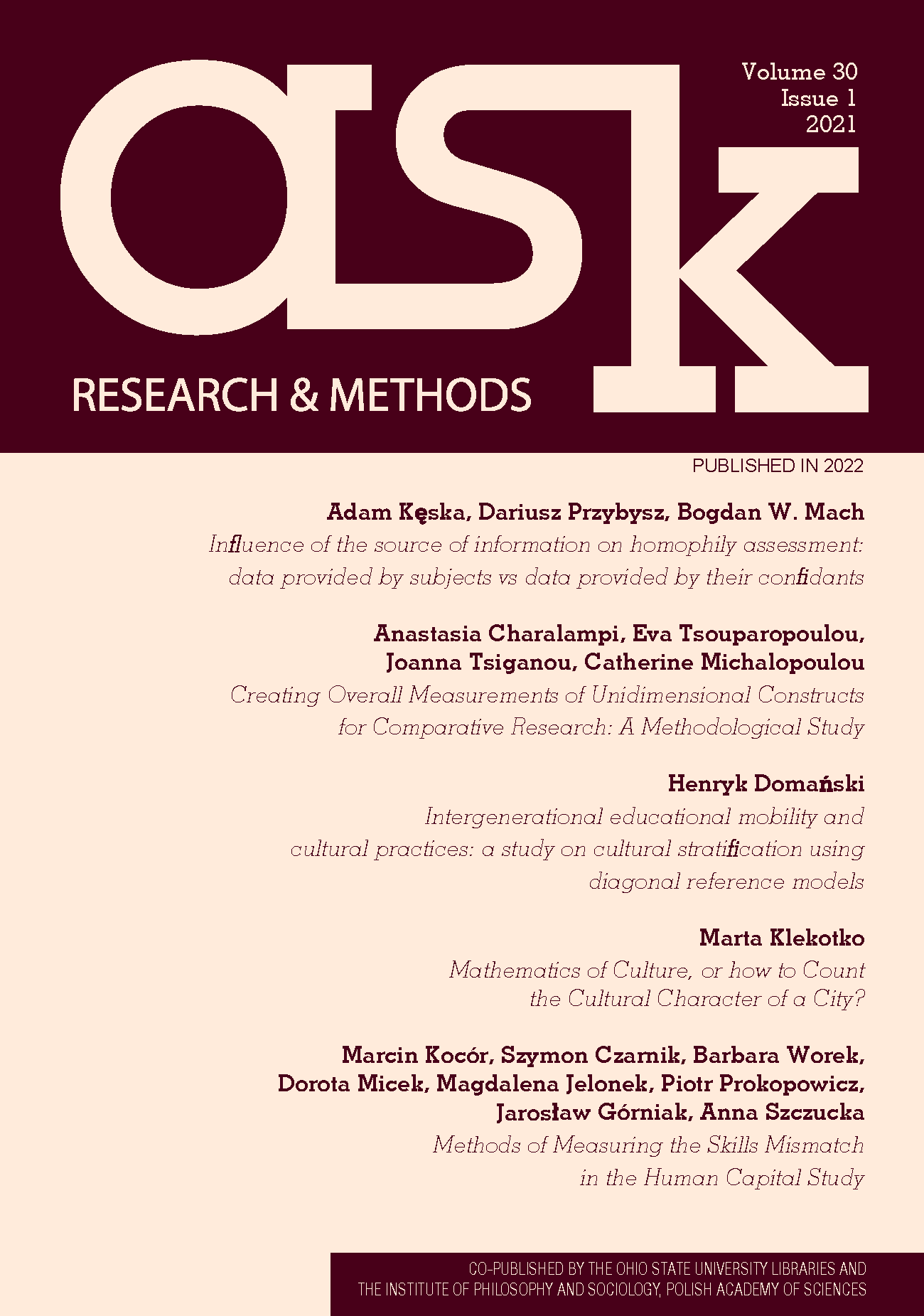Influence of the source of information on homophily assessment: data provided by subjects vs data provided by their confidants
Influence of the source of information on homophily assessment: data provided by subjects vs data provided by their confidants
Author(s): Adam Kęska, Dariusz Przybysz, Bogdan W. MachSubject(s): Social Sciences, Sociology
Published by: Instytut Filozofii i Socjologii Polskiej Akademii Nauk
Keywords: homophily; social networks; friendship networks; sociological methodology; log-linear models
Summary/Abstract: The present article analyses data on ego-centred networks from a nationally representative sample of Polish citizens (egos) and their regular conversation partners (alters). In the study being used, apart from obtaining information from the respondent (the ego) about characteristics of their friends (alters), the respondent was additionally asked to provide contact details for his/her alters and the interviewers traced them. This allows to compare data concerning alters obtained from ego and from alters themselves. In the first part of the article, a comparison for three characteristics – age, education and occupational status – is provided as well as patterned differences are presented. In the second part, the issue whether the assessment of the strength of homophily depends on the source of information about the alters is raised. The differences are present, although they are rather slight. The authors observe greater homophily when they rely on the responses of the ego. Based on the results, recommendations for future research on ego-centred networks are formulated.
Journal: ASK. Research & Methods
- Issue Year: 2021
- Issue No: 30
- Page Range: 3-24
- Page Count: 22
- Language: English
- Content File-PDF

